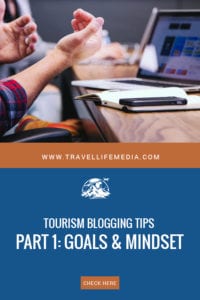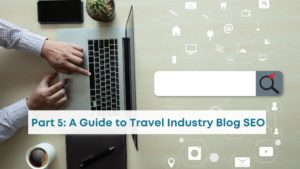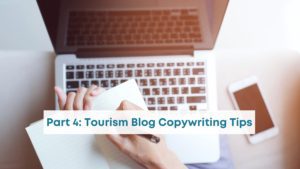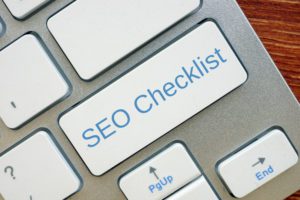Welcome to the Blogging for Tour Operators series originally featured on the Tourpreneur podcast with Shane Whaley. This series is broken into bitesize episodes on specific topics related to tourism blogging.
Our goal is to help tourism operators and companies take their businesses to higher levels through blogging. Whether you run an activity, attraction, hotel, tour, or transport business, we hope you find the tips and guidelines shared on this series helpful on your blogging journey.
Are you considering starting a blog? Maybe, you’re started just recently. Or perhaps, you’re running a blog for a year now. No matter where you are in the blogging timeline, this series is for you.
In this Blogging for Tour Operators series, learn about the following topics:
Part 1: Goals and Mindset in Tourism Blogging (this post below)
Part 2: How to Develop Blog Post Ideas
Part 3: How to Reuse Content Effectively
Part 4: Tourism Blog Copywriting Tips
Part 5: SEO for Tourism Blogs
Why Start a Tourism Blog?
Let’s make things clear first: you’re not in dire need of a blog. As a business in the tourism industry, your top priority should be to design and deliver quality travel and tours for your clients or guests. Your online presence, however, helps attract potential customers, eventually increasing sales and bookings.
Starting a blog is a good investment for many businesses, and tour operators and other tourism professionals are no exception. Whether you’re an established company or a budding business, a blog provides infinite possibilities for you as it adds value to your website
Still not sure about starting a blog? Well, here are some helpful stats for you.
Do you know what 70% of people prefer to learn about a company through articles over advertisements? Gone are the heydays of ads. If you’re selling something, such as tours, your blog is a great avenue to subtly promote it. Remember that blogging is not synonymous with selling. In the world of online marketing, content is king. A good quality blog helps warm people up to know who you are.
Businesses that blog get 55% more website visitors than those that don’t. A blog offers something to visitors, so it naturally increases traffic to your website. With a blog, you can create good content to low-key promote your business and offer value to your audience.
Websites with a blog get 97% more links than those without. Links are a big deal in SEO and improve the value and ranking of your website. A blog then helps bring new people into your business.
Your Goals and Mindset
First, let’s talk about the foundation. Setting goals and shifting your mindset is the most important part of this whole series, as these two can make or break your decision to start a blog.
Without goals, you won’t have motivation. With a bad mindset, you shy away from taking risks and thus settle in being stuck somewhere. To start this whole journey of blogging, you have to determine your goals and shift your mindset.
Shifting Your Mindset
The moment you consider starting a blog, the imposter syndrome will find its way to your mind and cripple you. After all, you started a tourism business and not a writing one. If you’re keen to recognize the signs of imposter syndrome, the faster you can stop it from affecting the way you see things and change your mindset for the better.
Imposter syndrome makes you ask or feel the following:
- The fear of writing and sharing your ideas and putting your voice out
- “What if someone reads this and doesn’t think it’s good enough?”
- “What if no one reads it at all?”
- “Who am I to write and put something out in the world?”
- “I’m just a mere tour operator.”
These feelings are real, and I’ve certainly felt this way more times than I admit. Right now, I have two blogs and still write for other websites. But long before I got to that point, it took me five years before I mustered the courage to start a blog and create my first content.
So, is imposter syndrome real? Absolutely.
To fight those negative feelings, here are some recommended tips:
- Start writing a topic you love or are interested in that’s related to your brand as a tourism business. Do you love to hike? Then start writing about the best hiking trails in your area. Are you interested in history? Why not share the best museums to visit in your city?
- Stop caring about what other people think. Take the first step and give yourself a chance to learn as you go.
- Be kind to yourself. No one is born an expert. Your first round of work won’t be perfect, but that’s perfectly okay. It will have areas for improvement; that’s okay. It happens to EVERYONE!
Don’t care too much about measuring the results as soon as your first blog post is out. In fact, expect to have very little traffic to your post at the start. Again, that’s normal and okay.
Setting Your Goals
Setting goals makes blogging easier.
Goals direct your steps. They motivate and empower us to do something to achieve them. Before you start, it’s important to define your plan, establish your goals, and determine your audience. Doing so will not only make writing easier but also help define your content strategy.
What should be your goal(s) to start blogging? Well, this depends on you. Look at what you want to achieve through blogging.
Is it to attract new business to your tours? Then, you’ll want to create quality content that provides value to potential customers and is inspiring enough for them to share it.
Is it to improve your SEO and establish yourself as an authority in your field? Then, you’ll want to write blogs that answer questions people search on Google.
The goals you set will help you determine what to write. Whatever your goal will be, the most crucial point here is to learn that good, credible content will lead to more traffic, bookings, and business.
Focus on providing good content, utilizing your knowledge of and experience in the industry to put out quality information. The rest will surely follow.
Let’s say you run a business that offers walking tours in New York City. Someone may find your website on Google because you shared a blog post about your favorite local spots in NYC or maybe, about New York historical architecture.
It was found out that 60% of businesses say their blog has been really effective at getting people at the early stage of buying.
Now is the best time to start blogging. Why? Because people are more eager to travel than ever. Due to the pandemic, we weren’t able to go out and explore places as much as we wanted. People want to travel, which is why they research the things they want to do in the future.
Who are you writing for?
Another important thing to determine early in your blogging journey is your audience. The earlier you establish who you are writing for, the better you can speak to them.
Knowing your audience allows you to personalize your blog, which will transform your message to resonate with them. Your target audience is directly linked to what you want to achieve. For example, is your goal to increase bookings? Then, write for potential customers.
One powerful feature of blogs is you can modify and update them anytime. For instance, you can update a blog post about traveling to Canada during the pandemic every time new guidelines are implemented. If you realize a blog doesn’t align with your brand anymore, you can delete it. You 100% own your posts.
Blogging Discipline
Discipline in blogging helps bring stability and structure into the process. Here are some pieces of advice worth following as you start to blog.
Set Personal Deadlines
Setting deadlines is a necessary part of writing. Deadlines are an excellent way to beat procrastinating. Without them, it’s very easy to let everything slide. So, what happens is either the writing task is pushed down your priority list because something else has taken the top, or it is never completed.
Once you decide to start a blog, make sure to set a schedule for time to write. Aside from helping you quickly accomplish a task, deadlines also help determine a schedule for sharing a blog post. This will allow your audience to know when to expect future content.
Be Patient
Blogging takes time to generate good results. When you start a blog, don’t spend a lot of time analyzing your traffic and numbers. Yes, it will be low, and you could feel really deflated with what you see.
Is this even worth it, you may ask.
Be patient with your results. Give yourself breathing space to decide the type of content that works the best for you and those that make you happy and motivated. Focus on your goal, create quality content, and continue to learn how to blog effectively.
Once you’ve found your voice, your rhythm, and your style, this is the time when analytics become more important. This time, you’ve already figured out what works for your audience. What do the stats tell you about how people reacted to your content, and why?
Get Help from Others
No man is an island, and this is also true to writing. No matter how good of a writer you are, you need a fresh set of eyes to look at your work. Once you’ve written a post, it helps to hire someone to proofread it.
Editors will find nuggets of interesting ideas and build off of them and point out the ones that don’t work, making your blog post better. They will also spot mistakes and typos that you weren’t able to see. All a good editor does is make your work better, so be sure to tap one.
Accept Feedback—Even the Negative
Read comments. Accept positive criticisms. Seek feedback—honest feedback from people you trust helps guide you through your evolution of blogging.
“It’s a part of human nature for most of us,” Shane says. “You might get 10 compliments on your blog post and one negative comment and you just fixate on that one negative comment.”
Some posts may not even get any comments. You may ask, “Did people not like it? What did they think? Did they not read it?” Whether you receive comments or not, you’re going to create some kind of story in your mind.
When you read a negative comment, I recommend you walk away. Don’t comment; instead, focus your energy on thinking about what you can learn from the comment. Criticisms and feedback, when taken positively, can help build your character as a content creator and business person.
Compete with Yourself
Don’t compare yourself to anyone else. Find your voice, your style, your way of doing things. Here’s what I recommend: look at the content of the bloggers you admire and use their work as a guide to motivate you.
Determine the tasks you should do and break them into manageable steps. Plan, set deadlines, and have discipline. Learn that all these things help dissipate your fear. At the same time, having worries and fears is actually a good thing. If you’ve lost that worry every time you hit the big button, you’ve stopped caring completely.
Continue Learning
Learning is a continuous process, a lifelong one even. It doesn’t end just because your blog is already up. Continue to be open to learning—an interesting part of being a content creator is figuring out what works and what doesn’t.
Several variables come into play when you blog. Learning these variables that contribute to the success of a blog can help you determine the necessary actions to address them. And even when you have a high-performing blog with lots of traffic and generate a huge number of comments, you’ll find that there’s fun in analyzing and learning the driver of the performance.
Wrapping Up
If you’re planning to take your tourism business to a higher level, starting a blog is a safe start. To begin, it’s crucial to determine your blogging goals and shift your mindset. Your goals will help you move in the direction you envision, while the right mindset will help you fight imposter syndrome that can paralyze you.
Listen to the original podcast below for more details or get started on Part 2 of the series If you’re ready to move forward, it helps to learn how to develop blog post ideas for your tourism blog. Learn how to conquer writer’s block in Part 2 of this series.
Pin it and Access this Article Here








